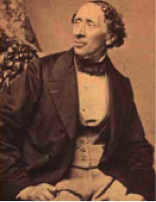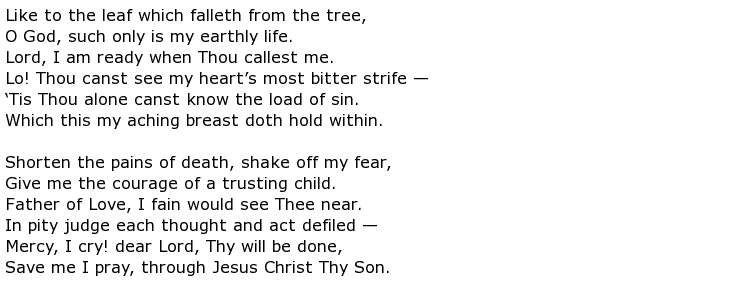 The 19th century Danish writer Hans Christian Andersen was primarily an author of fairy tales and short stories for children, but he was also a renowned poet. He was feted in his own country and throughout Scandinavia. Once he had travelled further afield his fame and popularity grew even more and his name is now synonymous with children’s stories across every continent of the world. His work was translated into countless languages and he has been honoured with statues and memorial plaques in towns and cities everywhere. There is even a theme park in the Chinese city of Shanghai which features his famous tales. It is remarkable that a European should be held in such high esteem, so far from home. When the park was opened he was described as a:
The 19th century Danish writer Hans Christian Andersen was primarily an author of fairy tales and short stories for children, but he was also a renowned poet. He was feted in his own country and throughout Scandinavia. Once he had travelled further afield his fame and popularity grew even more and his name is now synonymous with children’s stories across every continent of the world. His work was translated into countless languages and he has been honoured with statues and memorial plaques in towns and cities everywhere. There is even a theme park in the Chinese city of Shanghai which features his famous tales. It is remarkable that a European should be held in such high esteem, so far from home. When the park was opened he was described as a:

…which are qualities that many Chinese people would surely relate to.
Hans Christian Andersen was born on the 2nd April 1805 in the Danish town of Odense. His early family life was unremarkable except for the fact that his father claimed noble connections with an affiliation to the Royal family. None of this could be proved though and it is possible that, at some point in their history, family members had served the royal courts in some way. It is interesting though that the young Andersen was recognised by the King himself and had part of his education paid for. There has always been speculation that Hans was an illegitimate son of some royal personage and, with the previous statement in mind, it is possible that there was some truth in that.
Despite all of that Hans started his working life apprenticed to a weaver and then a local tailor. He sought acting work in Copenhagen at the age of 14 and he was initially employed in the Royal Danish Theatre, having a good soprano voice. This was a short-lived career though and he was advised to concentrate on writing poetry. He found another patron who sponsored him through some unhappy years in a grammar school where his writing ability was actively discouraged. Fortunately he overcame such difficulties and grew up into a very fine writer indeed.
By the age of 24 he had achieved some publishing success with short stories and a collection of poems and it seemed that the King still had his eye on this budding author. He granted a sum of money specifically for travelling expenses and Andersen set off on the first of his many European jaunts. In Switzerland he wrote
Agnete and the Merman and in Rome came his first novel, called The Improvisatore, which was published in 1835 to great acclaim. He travelled extensively but retained an apartment in Copenhagen.
His name is most famous of course for such stories as The Little Match Girl, The Snow Queen and The Ugly Duckling. Many of his tales were eventually turned into Hollywood animated films and Andersen is remarkable for the fact that his work was so universally popular that it has been translated into at least 150 languages.
While he was successful in his literary life he was much less so in his personal affairs. For instance he thought he had forged a good rapport with Charles Dickens but, after possibly outstaying his welcome at the Dickens home, he was never invited back. Romantically he hoped for marriage and fell in love with the opera soprano Jenny Lind. He wrote a story for her called The Nightingale and she famously became known as “The Swedish Nightingale”. Alas she could only offer him a kind of brotherly love. He also had homosexual leanings towards men such as Edvard Collin and Harald Scharff but his feelings were all un-reciprocated.
For all his fame and fortune he lived a lonely life and a fall at home caused such serious injuries that he never properly recovered. This was in 1872 and he lived for only three more years. By the very nature of its content, the following poem must have been written towards the end of his life. It is the melancholy The Poet’s Last Song:

Hans Christian Andersen died while staying at the house of friends in Copenhagen on the 4th August 1875. He was 70 years old.

